The Bengalaru Express
Our overnight train to Bangalore appeared to be late by two hours. So we threw down our packs on the filthy concrete platform, and began to give our backs, sopping wet from wheeling from Cochin to the Ernakulam train station, a fighting chance at drying.  A crowd soon formed around us, interested in learning more about the Speed TRs. We were happily chatting about AsiaWheeling with everyone from one-eyed Indian Railway employees to students commuting from Ernakulam to Bangalore, when the train quite unexpectedly arrived very nearly on its original schedule. So we packed up our belongings, bidding fond goodbyes to our new friends, one of whom insisted on sprinting to the other end of the platform to confirm our bogie (the Indian term for train car), as we chased behind him on our cycles, fully loaded, and ringing our bells to part the massive, hurrying crowds. Once again profusely dripping with sweat, we hustled into the 2nd Class A/C car. It was much like our previous (3rd Class A/C) car, with the welcome addition of curtains, allowing one to seclude one’s self, more or less, in his or her bunk. One marked difference here, however, was that it appeared I did not have a seat. Scott’s name showed quite clearly on the grubby, dot matrix printed roster that had been scotch taped to the side of the train, but mine was nowhere to be seen.

To give a little background on the situation, the Indian railways are tragically over utilized (or the rail ticket market undeserved, depending on whom you ask). Booking tickets and gaining a spot in a preferred compartment require booking to be made not just a few days, but a few weeks, or in some cases a few months, in advance. And unfortunately, our dearest comrades at the India Bureau had swung into action too late in the game, which meant that for the rest of our time in India, the lead-up to each train ride would be a bit of a nail-biter, as we monitored our spots on the wait list, and began to lay the preliminary contingency plans. Our confirmation on this train, for instance, had only come through that day. And had we not gotten word of it, we would have been scrambling to find a bus or shelling out serious cash for a chartered cab.
But confirmation had come, and we were accordingly somewhat puzzled at the absence of my name on the roster. We piled the cycles in one of the cramped spaces in between cars, and I waited while Scott went in search of the ticketeer, hoping that upon consulting the bloke, we would find that I did indeed have a seat. In the meantime, as the train left the station, I tried to steady the Speed TRs whilst defending against the heavy metal doors of the train, which swung open and slammed shut with the rhythm of the rails. Our fellow passengers struggled to file by me as I made sheepish apologies. Countless food and beverage sales people gave me their very best pitch as to why, with my pack still on, one hand on the cycles and another struggling to catch the giant swinging steel door which threatened to bash into the cycles and at times my person, I might also be interested in buying a few Cokes and a veg biryani.
Finally Scott emerged, happy to report that I did indeed have a seat. We even managed to stow the cycles reasonably elegantly in the under-the-seat storage zone. In fact, the ticketeer had signed off on the storage spot until the mechanic, smelling a fat tip, came out to sternly instruct us that we must store the cycles with him in the same way we had on the train to Cochin. We happily indulged him, since the fat tip he was looking for was really something more like 75 cents, and settled into the ride. Glad to be free of our baggage, we ordered the aforementioned veg biryani, which turned out to be quite tasty albeit somewhat polluted with sand. And when a family full of screaming children moved right next to my bunk, Scott and I decided it was time to insert some earplugs and call it a night.
We awoke the next morning, as bright yellow sunlight streamed into our train car and cool, dry air blew in through the open doors. Bangalore was refreshing, with a climate many compare to that of northern California.
I brushed my teeth in the train sink, and spent the rest of the ride into Bangalore, hanging out the train door, watching the scenery go by, growing steadily more and more urban, until we were pulling into the Bangalore central station.

At the station, we quickly bypassed the crowds of touts offering us cab rides into town, and located the man Nikhil had sent for us. The car was quite nice, and with some maneuvering, easily fit both cycles and all our stuff. We were also quite prepared to forgive the fact that it was significantly more expensive than the asking price of the touts. We made initial radio contact with Nikhil who assured us that breakfast was being prepared for us at the Diamond District serviced apartments, the accommodation that he had arranged for us. When we arrived, we unloaded our belongings, paid the driver, and were introduced to what would turn out to be one of some 10 different people who proclaimed to be our main point of contact at that strange hotel.
Perhaps to call it a hotel is misleading. The Diamond District Serviced Apartments is one of the most popular and posh housing developments in Bangalore. Once a failed project, dubiously financed, it was sold off at fire-sale prices and redone to be the newest, most elegant and urbane compound in the metropolis.
We had given the India Bureau only one directive regarding our Bangalore accommodation: we would like wireless Internet in the rooms. So it seemed, as we learned more about this place, that we would be treated to a little more luxury than we had asked for. Fine by us. Scott and I were ready to blow the budget a little on some Indian TLC, so we followed the two men who had been dispatched to lead us up to our room.
“Is this okay?” they asked. Our room was quite clean, much more like a sprawling flat, with a living room and a kitchen, a balcony with a washing machine, two bathrooms, and, for what might be the only time on the entire trip, separate bedrooms for Scott and me. “This is more than okay,” we replied.
We were quite unaccustomed to such luxury, and had only begun to explore the space, and search among what seemed like thousands of ambient wireless networks for the correct one, when a team of three men knocked on our door. Two of them went immediately to work in the kitchen, whipping up a dozen pieces of toast, two very spicy pepper omelets, two thimble-sized cups of coffee.
In the meantime, the third man produced a credit card terminal from his voluminous blue pants and began to demand a truly alarming amount of money from us. When we dug more deeply into the nature of the bill, we found a bizarre system of charges had been tacked on since we were leaving in the evening of the next day and presumed therefore to be pro-actively in violation of checkout policy. We proceeded to address this, but the bill negotiation proved unsettlingly similar to pulling teeth, not because the fellow spoke only a few words of English (AsiaWheeling deals with this predicament all the time), but because the man was completely unwilling to listen to anything other than verbal communication. By the time we had struggled our way through the bill and reduced the price to a merely budget-busting and no longer nausea-inducing amount, we were quite exhausted. I laid in with the credit card, a hitherto underutilized part of the AsiaWheeling toolkit, and Scott laid in with valiant attempts to communicate our interest in access to wireless Internet. Meanwhile the fellows in the kitchen had finished cooking and come into the living room to loom uncomfortably, averting eye contact and grinning sheepishly, giggling from time to time at our vast expenditures and struggles to communicate.
After a truly taxing battle for communication, we finally ascertained that there was no wireless in this room, and that for the time being, we would need to either buddy breathe from an Ethernet cable or pay another few thousand rupees to AirTel, the local giant wireless company for we’ll never be sure quite what. Fair enough. Buddy breathing it is. With that done, we quite exasperatedly shook hands with the credit-card-reader-wielding chap, and turned to the other two, who proved to be even more unwilling to invest in communicating with us. Thankfully, the main pieces of communication were simply “yes please” and “let’s eat.” Our attempt at “May we please have another two cups of coffee,” however, was quite difficult, but finally a message of one kind or another seemed to go through, because both chaps promptly started looking really nervous, glancing all around the room avoiding eye contact, then shuffling apologetically away.
What was it? Was there some vast cultural divide here in Bangalore? We had hitherto experienced absolutely no problem communicating with our hotels in India, and in general, the amount of effort seemed to vary inversely with the nightly rate, with the experience usually landing on the scale ranging from “exciting challenge” to “piece of cake.” Here we were well within the realm of “debilitating struggle.” Were the staff all kept sedated with some sort of strange gas? Were they all lotus eaters? Or was it Scott and I? We had no idea.
Our first waypoint for that day was to be a meeting with a local angel investor and serial entrepreneur. Thank goodness Nikhil was an hour late in meeting us, because we were just getting ready to head straight to the meeting spot, when our two coffees arrived.








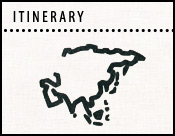

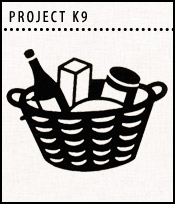
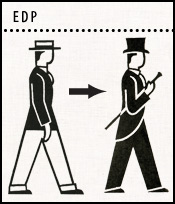
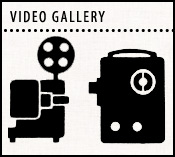
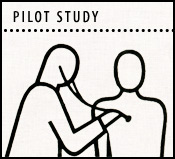
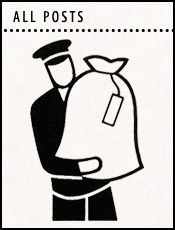





Comments
‘Indian Style’ as opposed to ‘Western Style’ toilets, I presume?